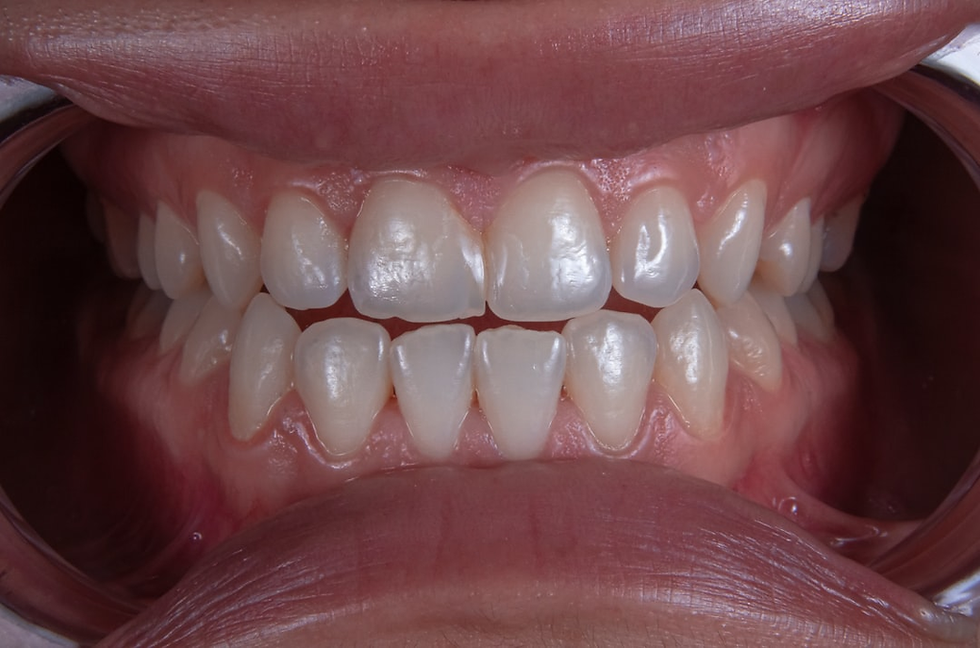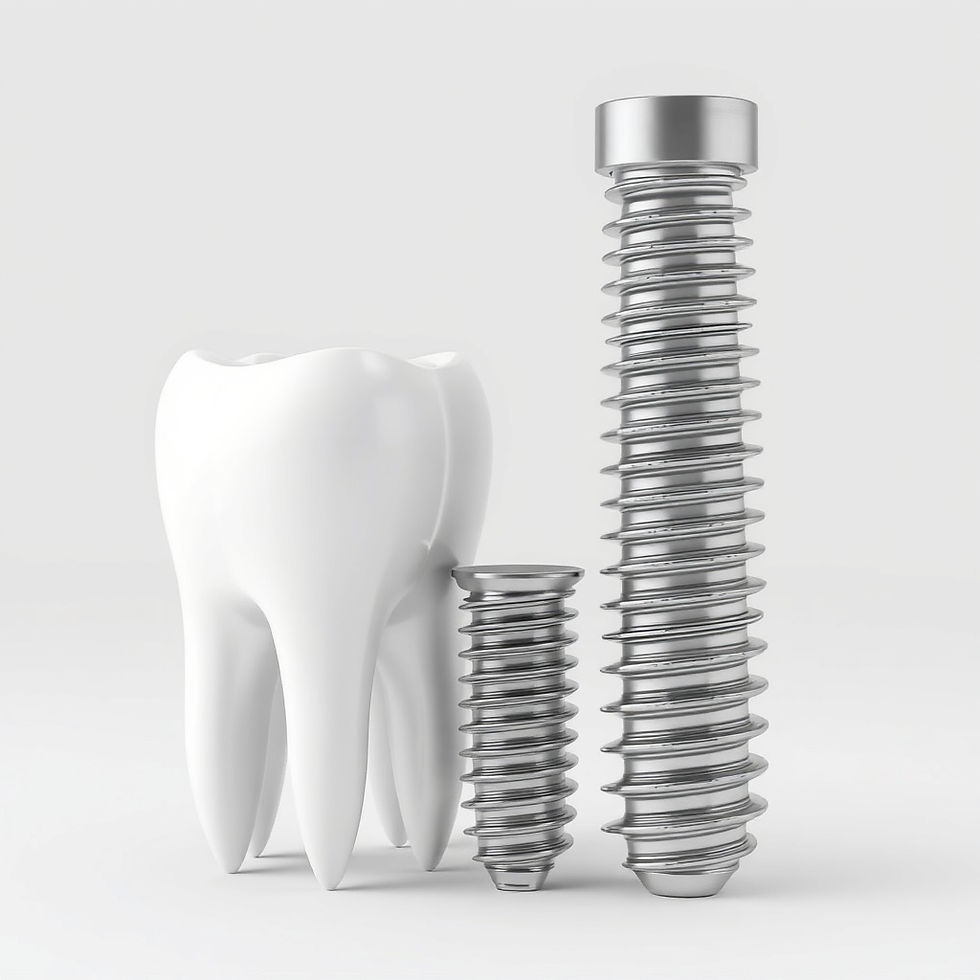Why Experts Now Say Not to Remove Your Wisdom Teeth
- plurefy com
- Aug 18, 2025
- 7 min read

Wisdom teeth, also known as third molars, have long been associated with pain and discomfort. For years, dental professionals routinely advised patients to have these teeth removed, often before any issues arose. However, recent discussions among dental experts suggest a shift in this traditional approach. This article will explore why experts are reconsidering the necessity of wisdom teeth removal and what it means for your dental care.
Wisdom teeth are the last set of molars to erupt in the mouth, typically appearing between the ages of 17 and 25. In many cases, these teeth can grow without causing any problems. However, due to lack of space in the jaw or improper alignment, wisdom teeth can sometimes lead to issues such as pain, infection, or crowding of other teeth.
The Role of Wisdom Teeth in Human Evolution
Wisdom teeth are believed to be a remnant from our ancestors who had larger jaws and needed these extra molars to help grind down plant tissue. As human diets and lifestyles have evolved, the necessity for these teeth has diminished. Our jaws have become smaller over time, which is why many people experience problems when these teeth emerge. Despite this evolutionary shift, wisdom teeth still play a role in our dental anatomy, although often not a necessary one.
Why Do Some People Have No Problems?
Interestingly, not everyone encounters issues with their wisdom teeth. Genetics can play a significant role in determining whether an individual will have enough space for their wisdom teeth. Some people are born without one or more of these molars, while others have jaws that can comfortably accommodate them. Understanding the genetic component can help predict potential issues and guide dental care decisions.
The Process of Eruption and Associated Discomfort
The process by which wisdom teeth emerge can be uncomfortable or even painful for some individuals. As these teeth push through the gums, they may cause soreness or swelling. However, this discomfort does not always indicate a problem requiring removal. Monitoring the eruption process can help determine if intervention is needed or if the discomfort will subside as the teeth settle into place.
Common Problems with Wisdom Teeth
Many people experience pain or discomfort as their wisdom teeth emerge. This can happen when the teeth become impacted, meaning they are trapped beneath the gum line or grow at an angle. Impacted wisdom teeth can lead to various complications, including:
Infection and Its Implications
When wisdom teeth partially erupt, they can create a flap of gum tissue that traps food particles and bacteria. This environment can lead to pericoronitis, a painful gum infection. If left untreated, this infection can spread to surrounding areas, potentially leading to more severe health issues. Managing infections promptly is critical, but it doesn't always necessitate tooth removal.
The Challenge of Crowding
As wisdom teeth push against adjacent molars, they can cause crowding. This movement can lead to misalignment of the teeth, which might require orthodontic treatment to correct. However, not all cases of crowding result in significant dental issues, and some individuals may adjust without needing extraction.
Decay and Maintenance Concerns
Due to their position at the back of the mouth, wisdom teeth are more challenging to clean effectively. This difficulty can make them prone to cavities and decay. Regular dental check-ups and good oral hygiene practices are essential to prevent decay, potentially eliminating the need for extraction if the teeth remain healthy.
The Traditional Approach to Wisdom Teeth Removal
For decades, the removal of wisdom teeth was a common preventive measure taken by dentists. The rationale was to avoid potential future problems, even if the teeth were not currently causing any issues. This approach became a standard practice, especially in Western countries, where proactive dental care is emphasized.
Historical Perspectives on Preventive Extraction
The practice of prophylactic extraction began in the mid-20th century when dental health strategies focused on preventing issues before they arose. This approach was largely driven by the belief that wisdom teeth were unnecessary and likely to cause problems. Many dentists advised extraction even in the absence of symptoms, viewing it as a precautionary measure.
Cultural and Geographical Differences in Dental Practices
The routine removal of wisdom teeth is more common in certain parts of the world, particularly in Western countries. Cultural attitudes towards dental health and preventive care have influenced these practices. In contrast, other regions may adopt a more conservative approach, opting to monitor wisdom teeth unless problems occur.
The Impact of Early Dental Education
Dental education has traditionally emphasized the potential complications associated with wisdom teeth, leading many practitioners to favor extraction. As educational curricula evolve, there's a growing emphasis on evidence-based practices that consider individual patient needs. This shift in educational focus is contributing to the reevaluation of wisdom teeth removal.
Rethinking Wisdom Teeth Removal

In recent years, a growing number of dental experts are questioning the necessity of routine wisdom teeth removal. Research and clinical studies have shown that not all wisdom teeth need to be extracted. Here are some reasons why experts are advocating for a more conservative approach:
Embracing a Conservative Approach
The shift towards a more conservative approach is based on the understanding that many wisdom teeth do not cause problems. Dentists are increasingly adopting a "watchful waiting" strategy, carefully monitoring wisdom teeth over time rather than rushing to remove them. This approach minimizes unnecessary surgical risks and aligns with modern principles of personalized medicine.
Leveraging Advances in Imaging Technology
Advancements in dental imaging technology, such as panoramic X-rays and 3D imaging, allow for more precise evaluation of wisdom teeth. These tools help dentists assess the position, health, and potential impact of wisdom teeth, enabling informed decisions about whether removal is necessary. Improved imaging reduces the guesswork involved in predicting future complications.
Weighing the Risks of Surgery
Surgical removal of wisdom teeth carries inherent risks, including infection, nerve damage, and complications related to anesthesia. By avoiding unnecessary surgeries, patients can reduce their exposure to these risks. This consideration is particularly important for individuals with medical conditions that may increase surgical complications.
Cost and Recovery Considerations
Wisdom teeth removal can be costly, especially if surgery is required. Additionally, the recovery process can be uncomfortable, requiring time off from work or school. By avoiding unnecessary extractions, patients can save money and avoid the inconvenience of recovery.
Financial Implications of Wisdom Teeth Extraction
The cost of wisdom teeth extraction can vary depending on factors such as the complexity of the procedure and geographic location. For some patients, the financial burden of extraction and post-operative care can be significant. By opting for a conservative approach, patients may avoid these expenses unless absolutely necessary.
The Recovery Process: What to Expect
Recovery from wisdom teeth removal can involve swelling, pain, and dietary restrictions. Patients may require time off from work or school to heal properly. Understanding the recovery process and potential complications can help patients weigh the benefits and drawbacks of extraction.
Long-term Implications for Dental Health
While the immediate financial and recovery considerations are important, it's also crucial to consider the long-term implications of wisdom teeth removal. Preserving healthy teeth can contribute to overall dental health and function. Patients should discuss the potential benefits and risks with their dentist to make informed decisions.
When Wisdom Teeth Should Be Removed
While the trend is moving towards preserving healthy wisdom teeth, there are still circumstances where removal is necessary. Here are some situations where extraction might be the best option:
Addressing Severe Pain and Discomfort
Persistent pain that interferes with daily life can be a strong indicator for removal. If over-the-counter pain relief and other treatments are ineffective, extraction may provide the most effective solution for relief. Dentists will typically evaluate the cause of pain to determine whether it's directly related to wisdom teeth.
Managing Infections and Gum Disease
Infections that cannot be controlled through antibiotics or other treatments may necessitate extraction. If wisdom teeth are contributing to periodontal disease or recurrent infections, removal can help prevent further complications. Prompt treatment of infections is crucial to maintaining overall oral health.
Monitoring for Cysts or Tumors
Though rare, wisdom teeth can be associated with cysts or tumors that require surgical intervention. Regular dental check-ups and imaging can help detect these issues early, allowing for appropriate management. Dentists will evaluate the risks and benefits of extraction in these situations.
Preventing Damage to Nearby Teeth
If wisdom teeth are causing significant damage to adjacent teeth, such as erosion or decay, extraction may be necessary to preserve overall dental health. Dentists will assess the impact of wisdom teeth on surrounding teeth and recommend removal if it is the most beneficial option.
What to Expect If You Keep Your Wisdom Teeth

by Ozkan Guner (https://unsplash.com/@dentistozkanguner)
If you and your dentist decide not to remove your wisdom teeth, it's important to maintain good oral hygiene and attend regular dental appointments. Here are some tips for keeping your wisdom teeth healthy:
Prioritizing Oral Hygiene
Maintaining excellent oral hygiene is essential for preventing issues with wisdom teeth. Regular brushing and flossing, particularly around the back molars, can help prevent plaque buildup and decay. Using an electric toothbrush and floss threader can make cleaning these hard-to-reach areas easier.
Using Antibacterial Mouthwash
An antibacterial mouthwash can be a valuable addition to your oral care routine. It helps reduce the risk of infections by controlling bacteria levels in the mouth. Dentists can recommend specific mouthwashes that are effective for maintaining the health of wisdom teeth.
Scheduling Regular Dental Visits
Regular dental visits are crucial for monitoring the condition of your wisdom teeth. Dentists can provide professional cleanings, evaluate any changes, and address potential issues before they become serious. Staying proactive with dental care ensures that wisdom teeth remain healthy and functional.
Recognizing Signs of Potential Problems
Being aware of signs that indicate potential problems with wisdom teeth is important. Symptoms such as swelling, persistent pain, or difficulty opening the mouth should prompt a visit to the dentist. Early intervention can prevent minor issues from escalating into more significant problems.
Conclusion
The decision to remove wisdom teeth should be made on a case-by-case basis, considering the individual patient's oral health and risk factors. While traditional practices favored routine removal, modern dental care encourages a more personalized approach. By staying informed and working closely with your dentist, you can make the best decision for your dental health.










Comments